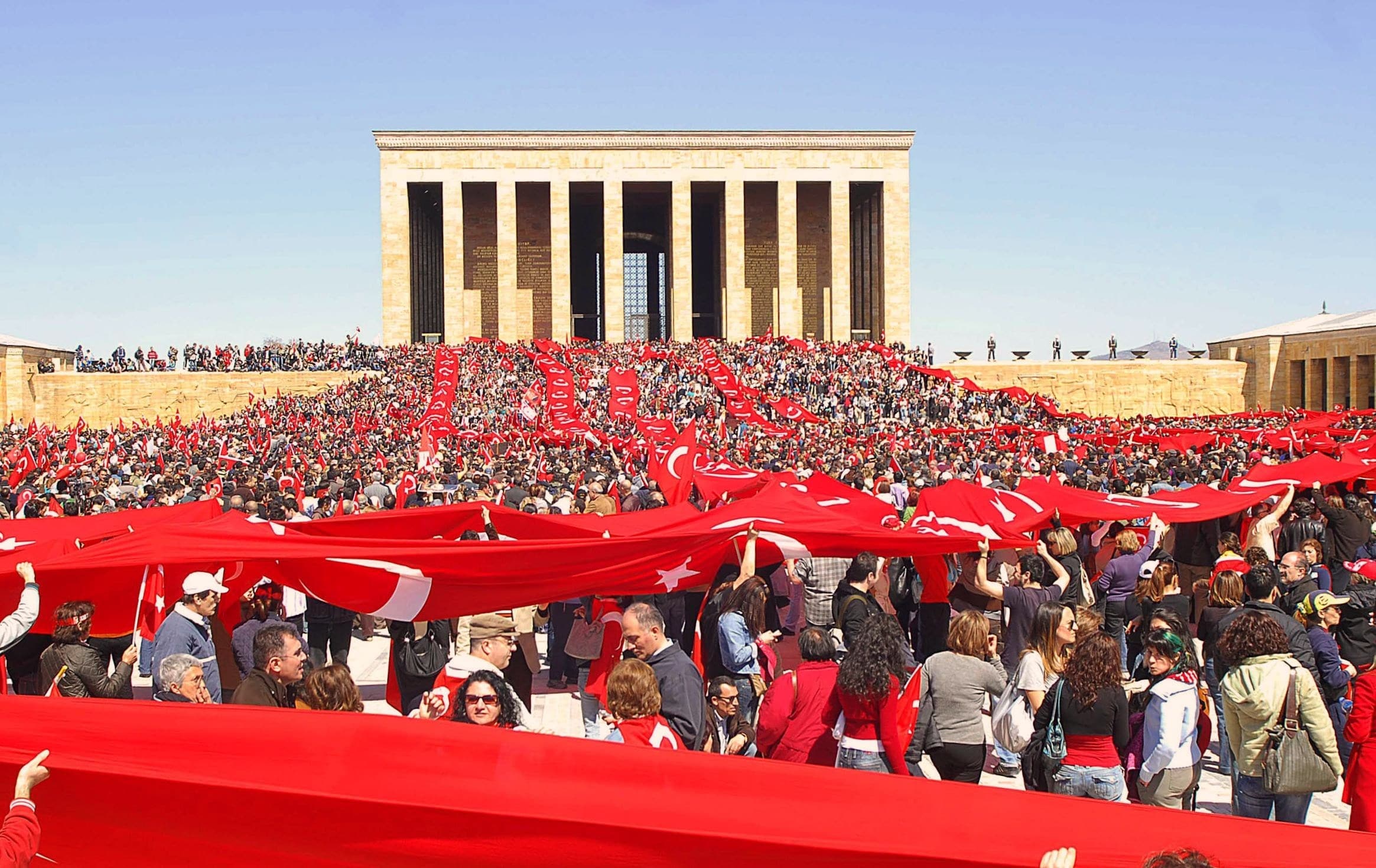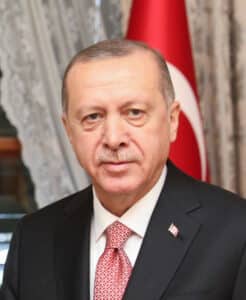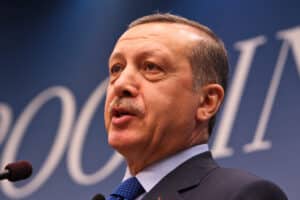In the general election that happened early in Turkey on June 24th 2018, the incumbent President Recep Yayyip Erdoğan has been reaffirmed in his position. The elections were both parliamentary and presidential, and calculations taking into account 99.9% of the votes claim Erdoğan has won 52.4% of all votes. His Islamic-conservative Justice and Development Party (AKP) came first, so far with 42.5% of the votes. In both the presidential and the parliamentary elections, the AKP was supported by the Nationalist Movement Party (MHP), with which it formed the Islamist-nationalist People’s Alliance. The MHP itself managed to pass the 10% threshold with 11.1% overall, and thus enables the People’s Alliance to form a majority government which the AKP on its own would not have managed. The government had introduced the option of forming election coalitions specifically for the 2018 elections, and the AKP’s own coalition, the People’s Alliance, specifically benefitted Erdoğan, as he stood as the joint candidate of the Alliance as a whole. Opinion polls had been sceptic about Erdoğan winning, as analyses claimed Erdoğan’s campaign was the worst yet, lacking enthusiasm and being rigged by mistakes. However, the election results enable the AKP to continue its streak of not losing a single election since it first came into power in 2002.
Source: Anadolu Ajansa
Oppression of Opposition
Turkey’s opposition formed an alliance not to win the elections as a coalition, but to challenge Erdoğan’s ability to rule without needing the authority of the parliament. Nonetheless, supporters of the AKP’s main opposition, the Republican People’s Party (CHP), are disappointed about the results, as the CHP managed to secure a mere 22.6% of votes, and its presidential candidate Muharrem İnce 30.8%. The campaign format has been accused of being biased towards the AKP, and political analysts have described Turkey’s electoral system as one of façade and authoritarianism. The opposition suffered from a lack of public attention. Kurdish HDP candidate Selahattin Demirtaş was imprisoned at the time of the elections and throughout the course of the campaign on charges of terrorism for allegedly supporting the outlawed Kurdistan Workers Party (PKK). Demirtaş was thus denied to hold speeches and properly rally, and he later accused the media of acting as if he was not running for the elections at all. Apart from the HDP, which in the end managed to secure 11.7% of the votes and thus pass the 10% threshold to get into parliament, small oppositional parties received little attention. Additionally, the ongoing state of emergency seriously impacted other oppositional party’s options for campaigning, and barred certain groups from entering polling places, and the Organization for Security and Cooperation in Europe (OSCE) previously expressed its worry about the election framework.
Tasks for Erdogan
The fact that Erdoğan won the elections in the first round is bound to satisfy the AKP. Previously, Erdoğan was accused not only of pursuing an authoritarian strategy by external observers, but he also faced criticism by his own population of not succeeding in managing the economy well. Interest rates in Turkey have been assessed as the fourth highest in the world, following only Argentina, Venezuela and Iran, and the Turkish lira has lost over twenty percent of its value since the beginning of the year. Since 2016’s failed coup attempt, Turkey finds itself in a state of emergency which allows the government to have a strong grip on the judiciary, media and civil society. Erdoğan had previously announced that he would relax the state of emergency following the elections. However, by being affirmed in his position in what can be considered a smooth way, Erdoğan will most likely feel there is little actual pressure on him in regards to these issues.
A New Direction for Turkish Unity
The elections had also circled around the topic of what principles Turkish ideology should be set upon. Until recent years, Ataturk’s legacy had unified the people through the pillars onto which he built the modern Turkish state when he became Turkey’s first Prime Minister over eighty years ago. Ataturk especially emphasized secularism and modernity, principles which Erdoğan’s AKP does not support. The AKP’s reinforced position in power thus sends a clear statement to both its voters and its opponents: The Turkish state no longer follows these values. Opponents explained that Turkish nationalism had been shifting away from a unifying pride for Ataturk towards a hatred for a common external enemy. This tendency had become especially strong after the failed coup attempt of 2016, on the basis of which Erdoğan emphasized his importance as a stabilization of Turkish politics. This narrative seems to have worked, as Turkish citizens voted in favor of security and stability rather than rights and freedom. Overall, the fear created in the wake of the coup attempt had a greater impact on the population than dreams, and actual acts of aggression by external perpetrators proved to more uniting than ideological principles introduced to Turkey several decades ago by a fading leader.
The Constitutional Reform Enters into Force
In 2017, the Turkish government under Erdoğan rallied for a constitutional reform, which was subsequently approved of in a popular referendum. The reform was to enter into force following the next general elections, regardless of their outcome, and thereby abolish the position of Prime Minister to expand executive powers of the President. The position is currently held by Binali Yıldırım of the AKP, and upon formation of the new cabinet elected on June 24th, critics claim that Erdoğan, having been reaffirmed, will now become head of a “one-man-rule system”. “This is the exact definition of a one-man regime,” CHP Candidate Muharram İnce said in a statement by the CHP representative in Brussels. “Consolidating the state, the executive, the legislative and the judiciary under one person […] will continue to be a great danger to Turkey. We will live through it and, unfortunately, pay the price together.” The presidential term officially ends in 2023, but until then, the option for more constitutional changes remains.
Sources Al-Monitor ǀ Anadolu Agency ǀ Deutsche Welle I ǀ Deutsche Welle II ǀ Carnegie Europe ǀ Middle East Eye ǀ OSCE ǀ Qantara



